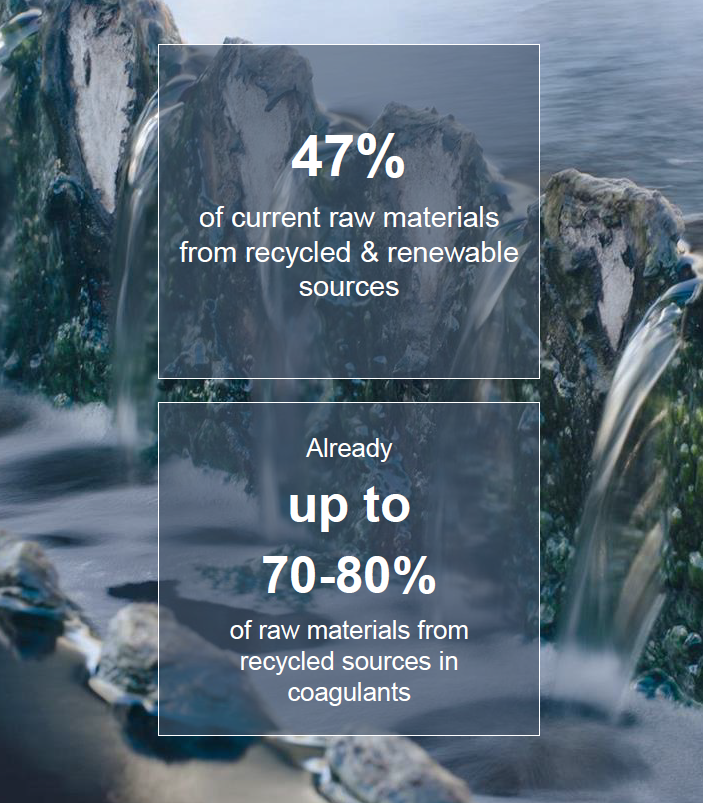Sustainability KPIs
Kemira updated its sustainability targets in 2021 and identified five themes as sustainability focus areas: safety, people, water, circularity and climate.

*After the divestment of the Oil & Gas business, Kemira’s waste target was adjusted in Q2 to exclude the impact of all divestments since the
baseline year 2019. Reported figures for 2022 and 2023 have also been adjusted.
**Kemira’s climate target has been updated to reflect the SBTi validation. Also 2018 baseline and years 2022 and 2023 have been adjusted to
reflect the divestment of the Oil & Gas business and other minor divestments.
***Scope 1: Direct greenhouse gas emissions from Kemira’s manufacturing sites, e.g. the generation of energy and emissions from
manufacturing processes. Scope 2: Indirect greenhouse gas emissions from external generation and purchase of electricity, heating, cooling,
and steam.
You can find more information on the five key themes on Kemira’s sustainability pages.
From United Nations Sustainable Development Goals (SDG), Clean Water and Sanitation (SDG 6), Decent Work and Economic Growth (SDG8), Responsible consumption and production (SDG12) and Climate action (SDG 13) are the most relevant to Kemira.
Kemira has been widely acknowledged for its commitment to sustainability
Kemira actively participates in various sustainability surveys. Below a list of some sustainability rankings for Kemira vs. chemical industry benchmark.

Kemira’s ambitious climate targets validated by the Science Based Targets initiative
Kemira has ambitious target for significant reductions in its greenhouse gas (GHG) emissions in line with the Science Based Target initiative (SBTi)*. The SBTi has approved Kemira’s near-term science-based emissions reduction target. SBTi has classified Kemira’s scope 1 and 2** target ambition as in line with a 1.5°C trajectory. Kemira commits to reduce absolute scope 1 and 2 emissions 51.23% by 2030 from a 2018 base year.
Kemira also commits to reduce absolute scope 3 GHG emissions from purchased goods and services and upstream and downstream transportation and distribution 32.5% by 2033 from a 2021 base year.
Kemira will keep its long-term ambition of becoming carbon neutral by 2045 for scopes 1&2.
*Science Based Targets initiative (SBTi), a partnership between CDP, the United Nations Global Compact (UNGC), the World Resources Institute (WRI) and the World Wide Fund for Nature (WWF), drives ambitious climate action by enabling companies to set science-based emissions reduction targets.
** Scope 1, 2 and 3 emissions as defined by the Greenhouse Gas Protocol. Scope 1 and 2 cover the emissions related to Kemira’s own production. Scope 3 includes all other relevant emissions throughout the value chain.
Sustainability reporting
Kemira’s sustainability reporting follows the Global Reporting Initiative’s (GRI) guidelines. The information in the Sustainability report has been externally assured by an independent third party. Also Kemira’s Annual Report contains sustainability related topics. As of 2025, Kemira will report according to the Corporate Sustainability Reporting Directive (CSRD).
Learn more:
Kemira’s Sustainability report 2023
Kemira’s Annual report 2023








